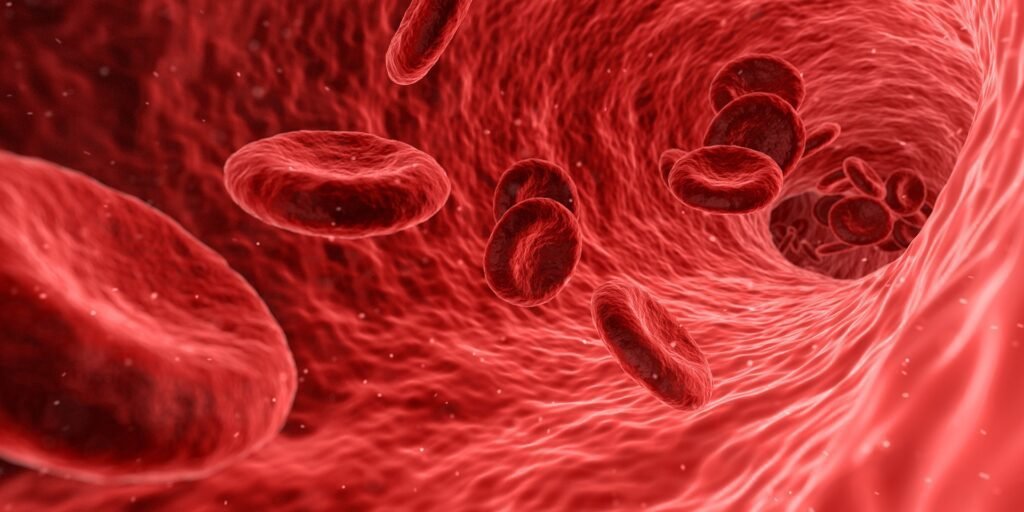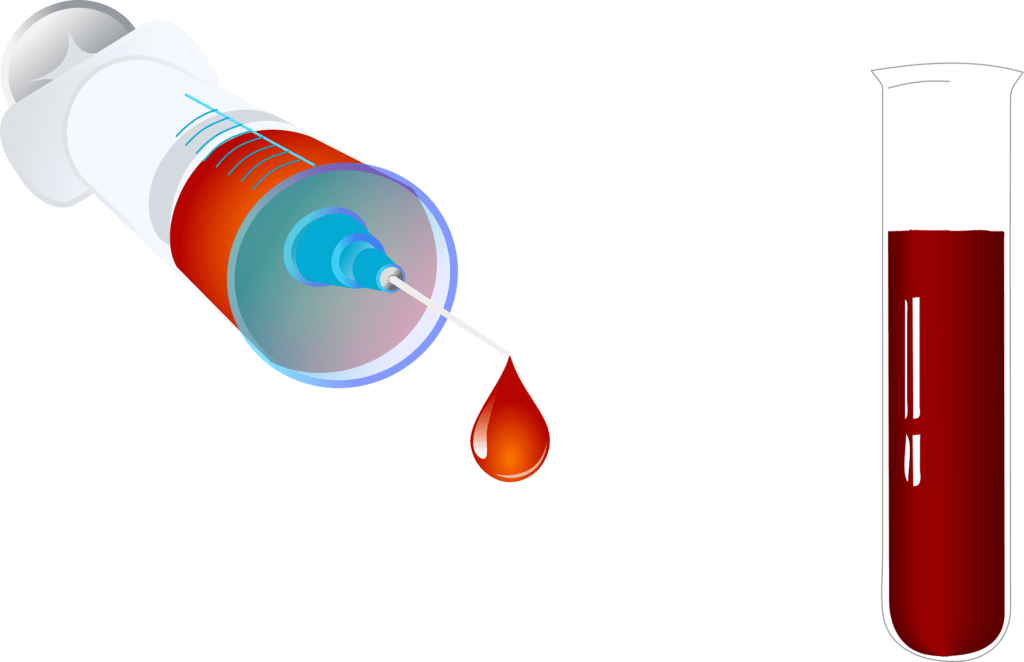
Many times we have seen in films and TV serials that suddenly there is a need for blood in the hospital, and the family members of the patient are being asked about his blood group. Some of them do not know their blood group & Types of Blood Groups, which is a disappointing thing.. The blood group of some does not match, which becomes a risky factor for the patient.and when the blood group of any member matches that of the patient, saving his life becomes possible, and only then does his family’s life also come back to life.
But have you ever wondered what this blood group is? Why is it so important to know that everyone’s blood color is red, yet why does not everyone have the same blood group?
What happens if someone is given the blood of another blood group?
And how are these blood groups positive and negative?
We are not able to understand this whole matter in films, and there the doctor says that now there is nothing to worry about, the danger has passed, and we relax. But in real life, we have to understand this very important topic. Therefore, why not know today what the story of blood groups tells?
So let us know about this today,Types of Blood Groups and because this is important and life-saving information for everyone, do see it completely. So let’s start –
If you want to know about blood groups, then we will start with the introduction of blood. Perhaps you know that blood, which is a very important component of the circulatory system, is a connective tissue.
Approximately 5 liters of blood circulate in the body of a healthy person, and RBC, WBC, and platelets are found in this blood, which keeps floating in the plasma.
The blood group is revealed by the antigens and antibodies present in the blood.
Now what are these two?
Antigens are molecules that are present on the surface of RBCs, i.e., red blood cells. Antibodies are proteins that are found in plasma and are a part of our body’s natural defenses.To understand blood groups further.. we have to understand the 2 most important and well nonantigenic systems that are examined during a blood transfusion.
These are – the ABO system and RH i.e. Rhesus system.

First let us talk about ABO system –
The ABO blood group system was discovered in the year 1900 by Austrian scientist Karl Landsteiner, for which he also received the Nobel Prize.
In this ABO system, blood groups are classified into 4 types based on the presence and absence of antigens on the RBC surface and the presence and absence of antibodies in the plasma. These 4 types are:
Blood group A, which has antigen A and antibodies B.
Blood group B, which has B antigen and A antibodies
Blood group O – which has no antigen but has both antibodies i.e. A and B.
Blood group AB – which has both antigens i.e. A and B but neither antibody.
How important it is to understand this ABO group properly and take it seriously, you will know from the fact that if blood of wrong blood group is given to someone at the time of blood donation or blood transfusion, then his life can also be lost.
For example, if someone’s blood group is B and he is unknowingly given blood of group A, then the antibodies present in his blood will attack the blood group A cells and due to the formation of a blood clot, he may even die.
The good thing is that blood group O does not have any antigens, hence this blood can be given to any group, hence blood group O is called universal donor whereas blood group AB is called universal recipient.. that is, this blood group has A person can take blood from every blood group.
Now know that which blood group can give blood to whom and from whom can take blood, before that we have to understand Rh factor also, so let us know about it –
Many times, apart from antigens A and B, another antigen is also found present on the surface of red blood cells which is Rh antigen or Rh factor which is also called D antigen. And this antigen is present on the RBCs of most people. This antigen itself decides whether the blood group will be positive or negative. That is, if Rh factor is present then the blood group will be positive and there will be no antibody against this antigen and if Rh factor is absent then the blood group will be negative.
This will not affect any person’s health.. But yes, it is really important for a pregnant woman, hence during pregnancy, blood group test is used to find out whether the mother’s blood group is negative or positive.

The reason for doing this is that if the mother’s blood group is Rh negative and the unborn child receives Rh positive blood group from the father, then there can be complications and its treatment becomes necessary.
Apart from this, even in general conditions, it is necessary to know the Rh factor at the time of donating blood to a person, hence the Rh factor is also matched with the blood group of the donor and recipient.
And now, after knowing what the Rh factor is, eight types of blood groups can also be understood, which are:
1. Blood group A +
2. A –
3. B +
4. B –
5. AB +
6. AB –
7. O +
8. O –
Now you should know exactly which of these is your blood group.
Now that you have understood the ABO blood group system and Rh blood group system, now understand the blood group compatibility i.e. which blood group can give blood to a person of which blood group and from whom can one take it.. because non-compatibility. If there is a transfusion between blood groups, antibodies are formed which can create an acute hemolytic transfusion reaction, which is a serious condition.
So let us know about it –
Can donate blood to A+ blood group..A+ and AB+..
And can take blood from A +, A -, O +, O -.
A – Blood Group… A person of A +, A -, AB + and AB – blood group can donate blood..
And can take blood from A-, O-.
A person with B+ blood group can donate blood to B+ and AB+
Whereas B + can take blood from B -, O + and O -.
A person with B – blood group can donate blood to B +, B -, AB + and AB -.
Whereas can receive blood only from B- and O-.
Now know about Universal Recipient Blood Group, AB + blood group..Only AB + can donate blood..
Whereas blood can be received from every blood group.
And AB – blood group.. Can donate blood to AB + and AB -..
And can take blood from A-, B-, AB- and O-.
And now we finally know about the universal donor: blood groups can donate blood to O +.. A +, B +, AB + and O + blood groups..
Whereas blood can be taken from O + and O -.

And blood group O -, is a blood group that can give blood to all blood groups but can receive blood only from O -.
It can also be very informative for you that in India, about 23% people have A blood group, 34% of people have B, 34.50% people have O and 8% of people have AB blood group. Whereas Rh positive population is about 94.13% and Rh-negative population is 5.87%.
In the world, 33.50% of the population has A blood group, 16% has B blood group, 5.50% is of AB blood group and 45% of the population is of O blood group.
So friends, in this way now you also know which blood group can match with which blood group. Spread this information as much as possible and if you are feeling confused about this, then know that the most important thing for you is to know what your blood group is, so definitely fulfill this duty.
And if you found this blog helpful, then do like it and you can also tell by commenting whether you are already aware of the blood group or will definitely pay attention to it now.
And for more such interesting and innovative blogs, visit our website, TECHASTER.COM, so that every new and innovative piece of information reaches you first.
Thank You !!!

Pingback: Recognizing Dyslexia: Unveiling Symptoms of Dyslexia
Pingback: How to get SIX PACK ABS-Rapid Results
Pingback: Your Health, Your Wealth: Best Individual Health Insurance for a Secure Future! - Techaster
Несомненно трендовые события мира fashion.
Важные мероприятия известнейших подуимов.
Модные дома, торговые марки, haute couture.
Свежее место для стильныех людей.
752 https://vladnews.ru/2023-11-16/227949/demna_gvasaliya https://kazantoday.ru/kznpub/2024-02-10-vypavshie-osadki-v-kazani-prevysili-mesyachnuyu-normu.html
https://ekbtoday.ru/news/2023-12-01-v-detskom-lagere-solnyshko-v-sverdlovskoy-oblasti-umerla-15-letnyaya-vozhataya/
https://vladtoday.ru/news/2023-12-31-otmena-feyerverkov-vo-vladivostoke-iz-za-sobytiy-v-belgorode/
https://rftimes.ru/news/2024-03-05-sekrety-proizvodstva-stekol-dlya-neboskrebov-i-aeroportov
https://sochidaily.ru/read/2024-08-08-inostranets-pytalsya-poluchit-kvartiru-cherez-poddelannoe-svidetelstvo-o-brake.html
Несомненно свежие новости моды.
Все события мировых подуимов.
Модные дома, торговые марки, гедонизм.
Самое лучшее место для модных людей.
0554 https://vladnews.ru/2023-11-16/227949/demna_gvasaliya https://vladtoday.ru/news/2024-05-21-vo-vladivostoke-proizoshla-avariya-na-elektrosetyah/
https://msk.rftimes.ru/news/2024-04-25-bezbiletnik-napal-na-passazhira-metro-v-moskve-iz-za-zamechaniya
https://emurmansk.ru/pub/2023-12-15-murmanskie-deputaty-podderzhali-izmeneniya-v-sertifikate-na-zhile-detyam-sirotam/
https://rftimes.ru/news/2023-11-24-ukraina-vyvezet-semi-s-detmi-iz-podkontrolnoy-chasti-hersonskoy-oblasti
https://mskfirst.ru/msk/2024-06-15-video-festival-vremena-i-epohi-v-moskve
Самые трендовые новинки мира fashion.
Важные новости самых влиятельных подуимов.
Модные дома, лейблы, гедонизм.
Лучшее место для стильныех хайпбистов.
https://kazan.rftimes.ru/news/2024-06-03-v-aeroportu-kazani-vveli-ogranicheniya
Несомненно актуальные события модного мира.
Актуальные события всемирных подуимов.
Модные дома, торговые марки, haute couture.
Свежее место для модных людей.
https://enovosibirsk.ru/read/2024-02-06-dorozhnye-izmeneniya-v-novosibirske-nadeyutsya-li-na-uluchshenie-situatsii/